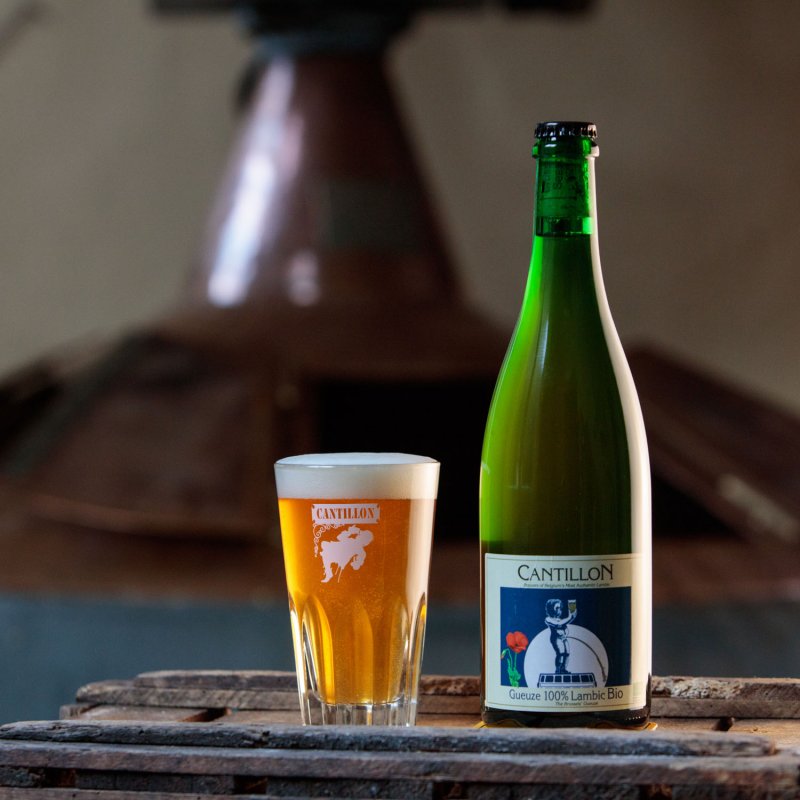A Word from the Brewer

Lambics produced at Cantillon Brewery are referred to as “young” after one year of ageing and are considered as fully matured after three years. Young beers contain the natural sugars that are necessary for secondary fermentation in the bottle while beers that have matured for three years contribute their taste and refined flavours.
Gueuze is the ultimate result of a complex blend of lambics of different ages and with different tastes kept in oak barrels. The brewer’s main task involves tasting and he or she will have to try around a dozen lambics from different barrels, finally selecting five or six. It is by this method that gueuze 100% lambic, presenting the typical characteristics of Cantillon Brewery’s beers, is produced. Each blended batch yields a slightly different gueuze because the natural elements at the heart of the beer make it impossible to produce a standardised product.
Bottles are positioned horizontally in a cellar and left to rest for an average of one year, this being the time required for the conversion of the sugars into carbon dioxide (secondary fermentation in the bottle). Saturation of the liquid takes place slowly and naturally, and when the lambic turns into a foaming beer it is called gueuze.

